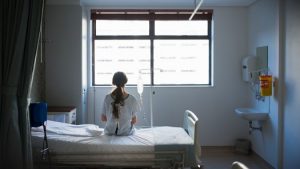Going through cancer is no doubt a harrowing journey that’s taxing on your mind, body, and spirit. Research shows that stress weakens the immune system, which is not something you can afford when it’s already been sabotaged by cancer. If you choose to cope with destructive actions including drugs, alcohol, poor diet, and lack of exercise, it’s likely that you’ll have a poorer quality of life after treatment. There are experimental studies that suggest psychological stress can encourage a tumor to grow and spread. This is why it’s crucial that you administer proper self-care during treatment and beyond.
- Taking A Small Amount Of Time To Think Can Be Beneficial
Various studies indicate that expressive writing can help reduce cancer side effects, express difficult feelings, clarify goals and explore ways to cope with their illness. - Choose your method of writing: Do you prefer old-fashioned pen and paper, or journaling via a computer or tablet?
- Consider scheduling writing into your daily routine: Don’t let it consume your entire day — particularly if you’re expressing negative thoughts or emotions. It can be therapeutic to start or end your day by writing, but you shouldn’t feel pressured. Feel free to journal when you’re feeling inspired to do so.
- Write constructively: Dear Diary entries with daily events are fine, but journaling about hopes, fears, goals, and breakthroughs can be more beneficial for recovery. Consider swapping the journal for a card, letter, or email to a family member or friend.
- Don’t edit yourself: In order for this to be a truly beneficial exercise, don’t edit yourself during the writing process. Write exactly what’s on your mind. You don’t have to share these thoughts with anyone if you don’t want to.
A Spa Retreat Can Recharge Your Batteries
Many spas refuse to administer treatments to cancer patients, as there can be contraindications. Skin is more delicate and susceptible to bruising and tearing and there can be neurological side effects. Instead of stressing yourself in a traditional spa environment, consider treating yourself to a retreat that specializes in catering to guests undergoing cancer treatment. These programs offer holistic approaches to boost the body’s immune system, therapies and nutritional assessments administered by doctors, mental health solutions, stress management, and more. Of course, you’ll also be eating a diet filled with nutritious, cancer-fighting foods.
Exercise Is A Necessity For Proper Recovery
Physical activity is a double-edged sword because chemo and radiation treatments make you extremely tired, but lack of exercise makes recovery more difficult due to loss of endurance and muscle tone. As arduous as it can be, talk to your doctor about implementing a safe exercise program that includes aerobic exercise, strength training (great for bone density, too), and balance and stretching exercises. Don’t force yourself to exercise on days when you’re extremely exhausted, as it will only have an adverse effect.
Opioid Addiction Is Real
Self-care tactics also help battle one of the biggest concerns with cancer treatment: opioid addiction. While journaling and taking yoga may not be enough to manage symptoms of pain, there are a few tactics you can try to minimize your risk of becoming addicted:
- Know your risk factors in advance: Talk to your doctor about any concerns you have and don’t be afraid to ask questions. Be honest if you — or anyone in your family — has a history of addiction problems as you may be at a higher risk for dependency.
- Take medication only as prescribed: Opioids are the type of drug that you need to stop taking over time — not abruptly, so if you’re no longer in severe pain, discuss a new dosage and consider a less strong (even over the counter in some cases) alternative such as non-steroidal anti-inflammatory drugs (NSAIDs), and depression medications like Cymbalta and Amitriptyline.
Establishing solid self-care tactics now will help you for life after treatment. If an activity or tactic isn’t working, switch things up. There’s no one-size-fits-all method for being your best self while fighting the brave cancer battle.
Photo Credit: Pixabay

My name is Cielo, the author of “The Cancer Voice Asia”, a blog that aims to support and inspire anyone who is facing cancer. I know how it feels to be diagnosed with a rare and aggressive type of cancer, Leiomyosarcoma, at the age of 29. I know the challenges, the fears, the hopes, and the joys of living with cancer. I want to share my story with you and connect you with others who understand what you are going through. Together, we can empower ourselves and fight against the disease. Join me on this platform and let’s make our healing journey a meaningful one.



